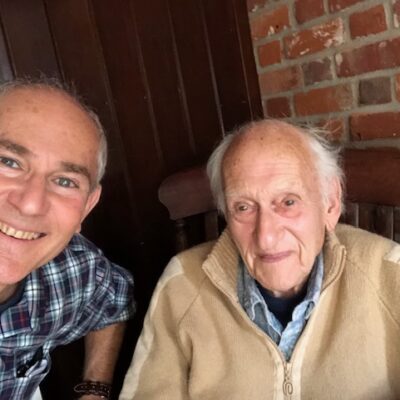Dr Jack Preger
Dr Jack Preger was a British doctor, known to his colleagues and patients as Dr Jack, who devoted his remarkable life to helping the slum dwellers of Kolkata. He retired in 2019 at the age of 88.
Dr Jack has East European Jewish ancestry with his father’s family from Eastern Poland (now Russia). They settled in Manchester in 1870 where his father became a grocer. After National Service in the British Army, Jack read PPE in Oxford, and tried his hand at farming, before at the age of 35, going to study medicine – finishing in 1972. He then worked in Bangladesh with refugees, but when he exposed an international child trafficking racket, he was deported in 1979 by the Bangladesh authorities.
Dr Jack saw his work as a humanitarian calling and dedicated his professional life to building the charity ‘Calcutta Rescue’ to address the health needs of the marginalised, the destitute and the poor. Dr Jack was well ahead of his time in recognising that his patients’ individual health largely depended on public health (clean water, sanitation, housing and nutrition) and that public health itself depends on environmental health (thriving ecosystems, stable climates and peaceful co-existence). He realised that sustainable development was critical to building resilience into the slum communities to make them less vulnerable to weather extremes and social disruption from migration, poverty, hunger and insecure employment.
Working tirelessly, selflessly and acting as a role model, Dr Jack was able to ensure interfaith co-operation between Hindu, Christian and Muslim slum communities. He also highlighted the exploitation of children and campaigned for women’s sexual and reproductive health as a human right.
As well as being a visionary, Dr Jack was a pragmatist, and over 40 years developed a solid volunteer donor structure in Europe for the Calcutta Rescue NGO, encouraged local self-reliance employing Kolkata-based doctors and health workers, and reached out to Kolkata city departments to advocate on behalf of its poor and voiceless citizens.
From its very humble origins, the organisation under his stewardship has grown to employ nearly 200 staff from doctors to health workers, physiotherapists, pharmacists, psychologists, teachers and educators. Calcutta Rescue now runs 4 clinics, 3 outreach health programmes, a school and a workshop. It has a presence in 50 slums with potential touch points to 500,000 citizens.
Through sheer dedication and an unrelenting spirit, his efforts have left a legacy that continues to inspire and motivate me in my own work.


